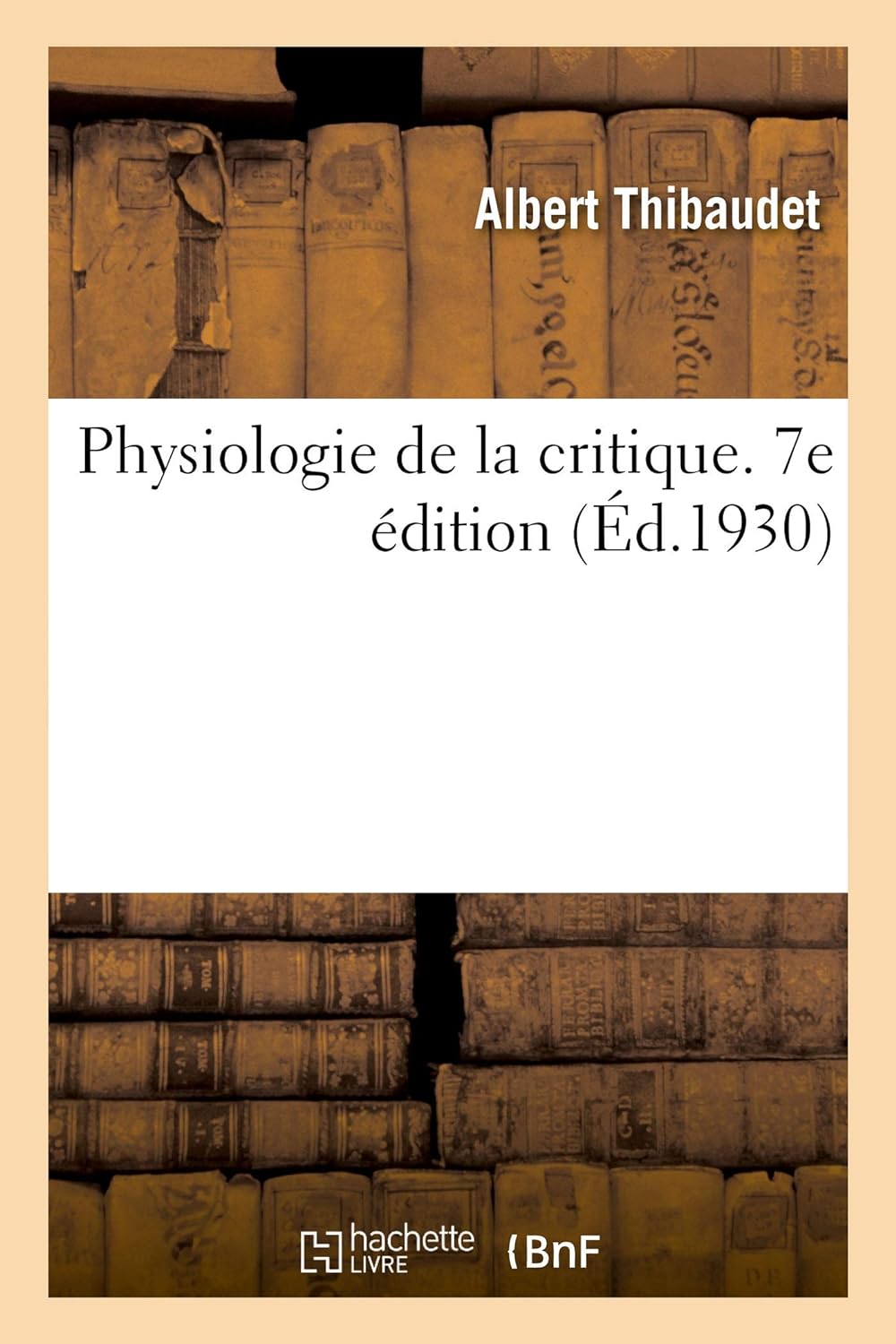Literary criticism calls for ‘common sense’

FILE PHOTO: The cover of Physiologie de la critique by Albert Thibaudet, published in 1930
Literature, from production to dissemination to reception, constitutes a large system. Within this system, the dissemination and reception of literature involve literary criticism, whose main function is to introduce, critique, recommend, and encourage.
Literary studies and literary criticism are closely related but not identical. The former relies on and produces theories, while the latter applies and tests theories. Literary studies prioritizes rigor, rationality, and scientific methods, keeping a certain distance from the present literary scene. Literary criticism is focused on “searching for flaws” in literary works, combining sensibility and rationality. French literary critic Albert Thibaudet noted that literary criticism could be categorized as either “critique of beauty” or “critique of flaws,” and he favored the latter. The author concurs with Thibaudet’s perspective, advocating that literary criticism should be primarily concerned with “searching for flaws,” because “critique of beauty” can only encourage the writer, while “critique of flaws” can enlighten and inspire more people.
Currently, the primary issue with literary criticism lies in certain reviews straying from common sense, resulting in confusion and disorder. First, the credibility of literary criticism tends to be undermined when positive or even laudatory reviews prevail and “critique of flaws” is disregarded. It is rather common that the publication of a piece of literary work is immediately followed by numerous unanimously laudatory reviews and hardly any serious criticism. Such coterie operations constitute a marketing strategy rather than true literary criticism, let alone combining “critique of beauty” and “critique of flaws.”
Indiscriminate laudatory reviews run counter to common sense since new works have not been widely tested through readers’ feedback. Moreover, many writers look forward to insightful scholarly criticism. Some possess a very strong spirit of exploration, and their innovative attempts need professional feedback. Laudatory reviews are also detrimental to literary canonization, because literary criticism partly determines whether contemporary works will continue to be appreciated in the long run.
Second, literary criticism suffers from the lack of professional aesthetic sense. Some so-called “criticism” that once attracted extensive attention reduced serious aesthetic activities to mere entertainment due to the absence of professional aesthetic attitudes and perspectives. While literary criticism can adopt multiple approaches, it would be “public opinion” or “entertainment” at best without aesthetic standards. When serious literary criticism is turned into “incidents” and a mass of unwitting, non-professional bystanders gather to “watch,” the risk of cyberbullying and psychological injury to writers is presented. Instead of being a public spectacle, literary criticism should serve as literary reflection or aesthetic contemplation, which contributes to in-depth analysis of works and readers’ understanding.
Third, new works are sometimes inappropriately evaluated against the criteria for literary canon. “Critique of flaws” can help improve creators’ aesthetic creativity and optimize readers’ reading options. However, it is injudicious to judge new works by canonical standards. These works should be compared with their contemporary counterparts or previous works by the same writer within their specific creative contexts. Canonization is a process of reception, critique, and research that spans decades, even centuries. While canons provide writers and readers with frameworks of reference, they should not be misused to criticize contemporary writers.
Literary criticism facilitates literary exchange and popularization of works, which is conducive to a healthy literary culture. With the support and encouragement from critics, those who have just begun their writing career can build self-confidence and continue to make progress. Literary critics should balance emotional warmth and rational wisdom, and adhere to professional standards and common sense. Otherwise, not only would literary criticism be rendered meaningless, it may also interfere with literary production, communication, and reception. In brief, literary criticism requires a clear vision, rational discourse, objectivity and impartiality. In particular, it necessitates a return to common sense.
Tan Xudong is a professor in the College of Liberal Arts at Shanghai University.
Edited by WANG YOURAN
